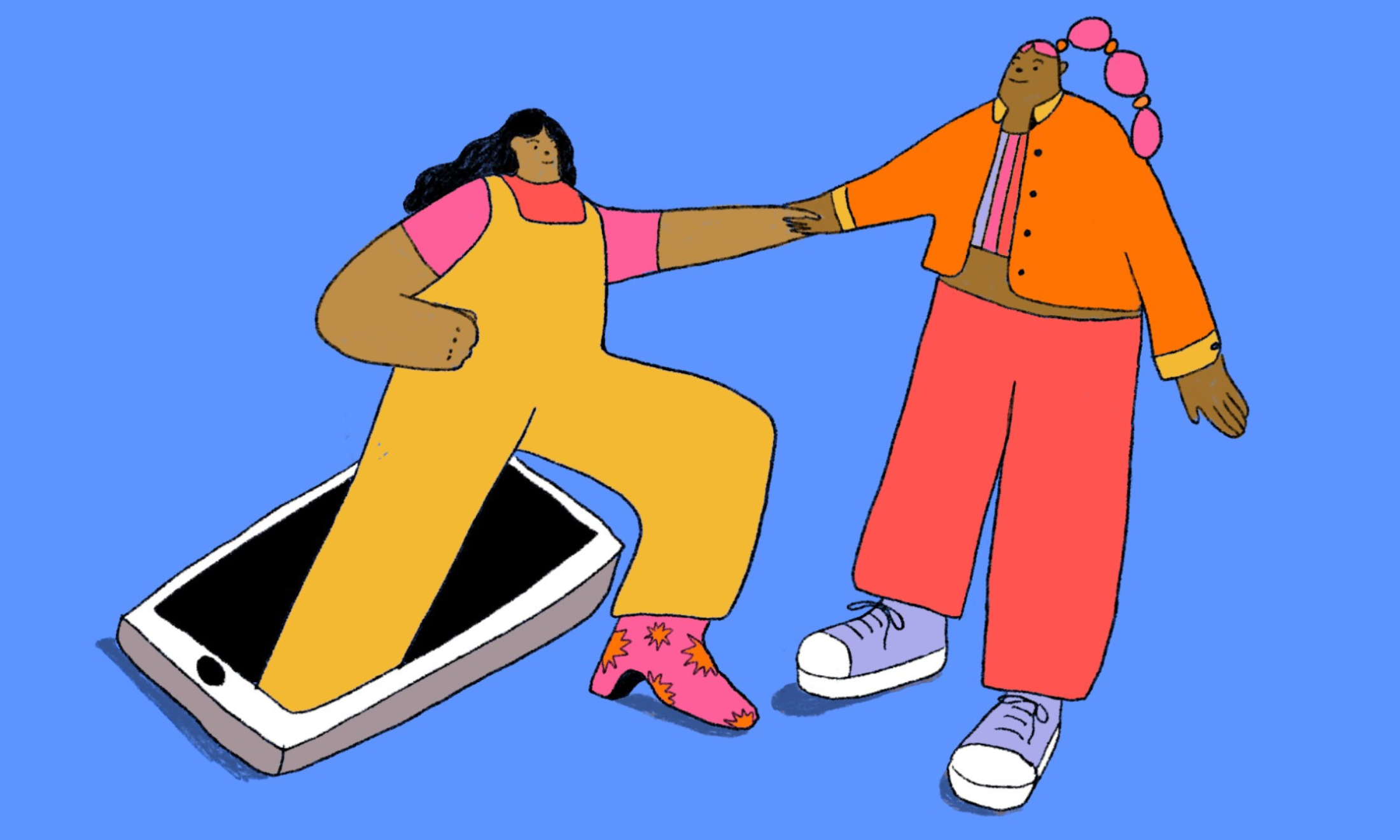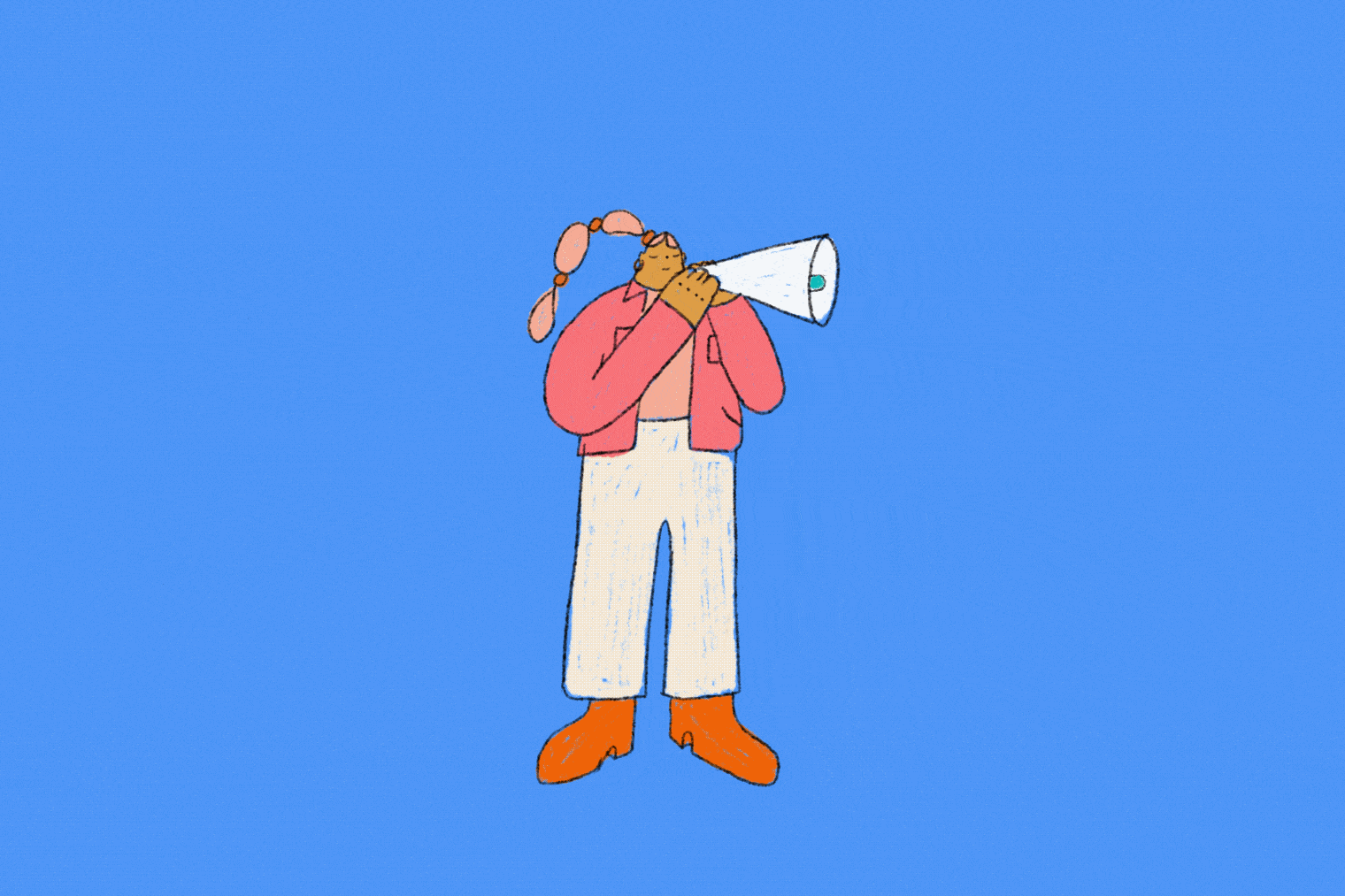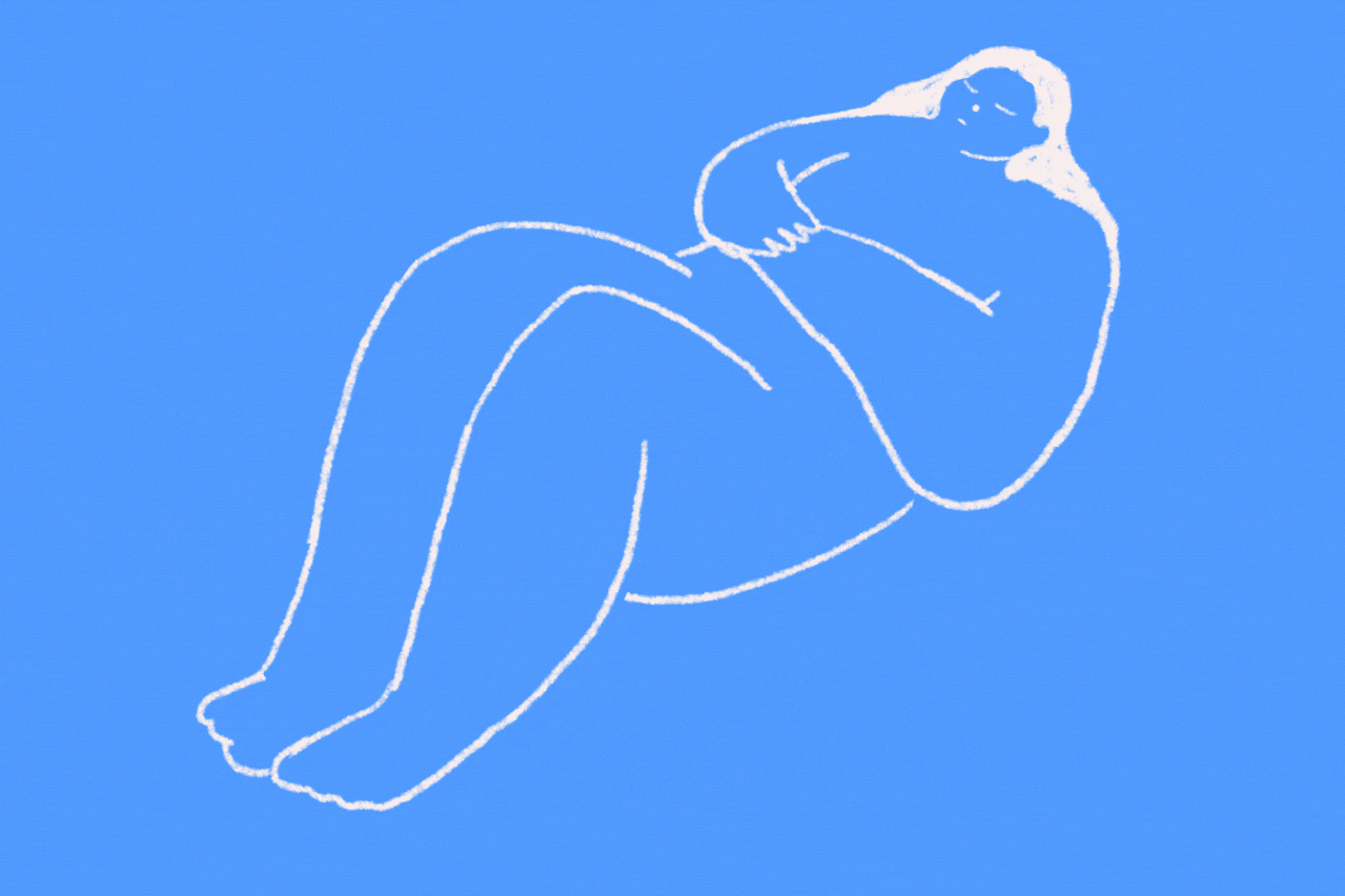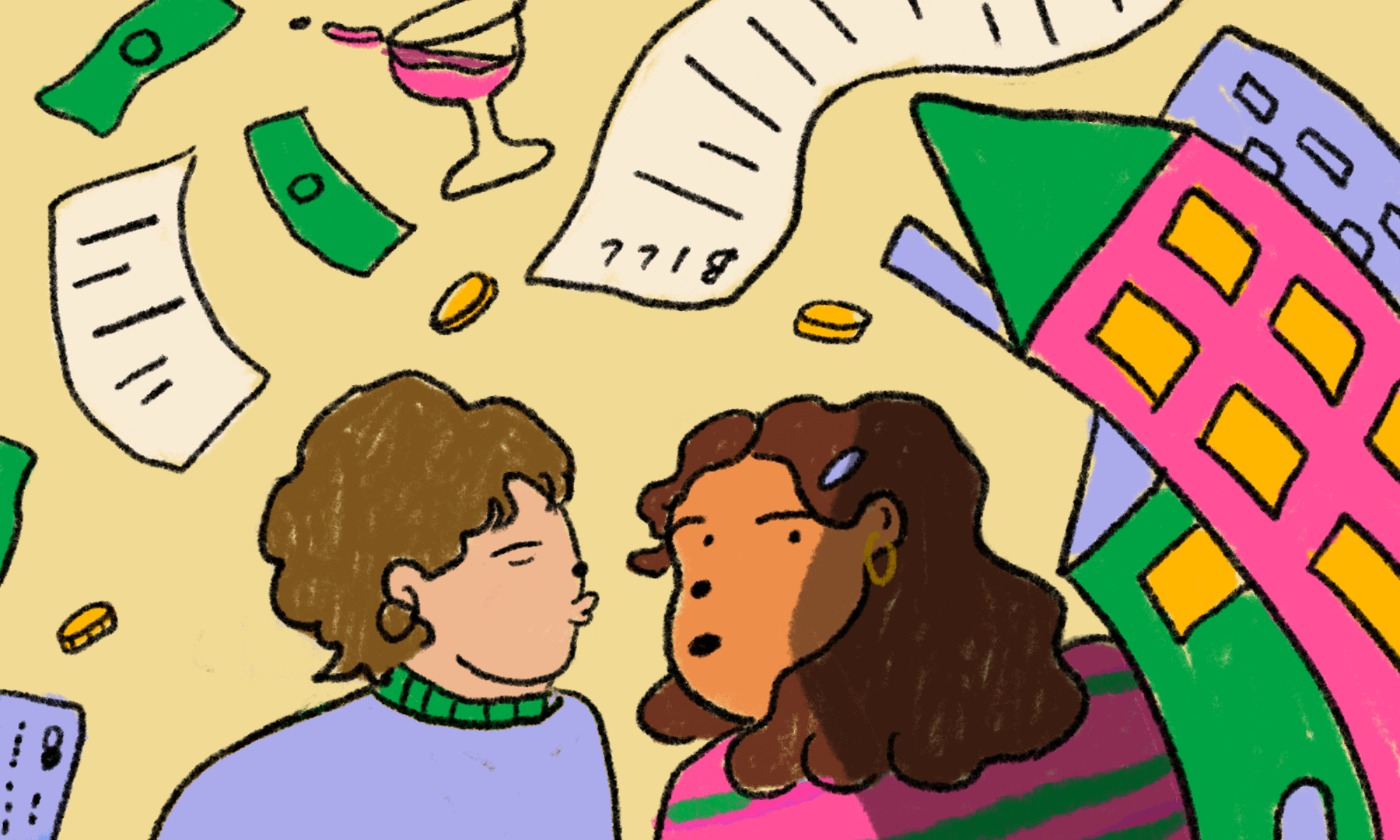
Alex Smyth
Swipe Left: How I found love after facing racist transmisogyny on dating apps
For Lorelai Patnaik, love was fiction in childhood, toxic on dating apps and then totally transformed when she found an IRL community.
Lorelai Patnaik
04 Aug 2022
Welcome back to gal-dem’s monthly dating column ‘Swipe Left’. Look out for new stories on love, sex and relationships from a different writer every month.
Content warning: this article contains mention of racism, transphobia and transmisogyny.
Growing up, love was limited to the world of fiction. I recognised it in the books and manga I read and on the television shows and movies I watched, yet, as someone who grew up asexual and aromantic, my childhood and teenage years were not about love as something I could personally experience. Instead it was something I just engaged with through fiction.
The reality of growing up as a young trans girl was that most of my thoughts weren’t occupied with dreams of finding my one true love. Instead, my mind just worried about whether or not my identity was valid, whether I would get to live as my authentic self, and whether I would be accepted by my family, friends and society. Love was secondary, and thinking about love was often a means of escape from the harsh realities that surrounded me.
But when I turned 17, things changed. I suddenly realised I was no longer aromantic by falling for one of my closest friends. It didn’t end well, with a messy love confession and a heartbreak. What a way to discover that ‘love’ did exist for me at the very end of high school.
When I was in university and away from my parents, I came across Grindr for the first time. Through my first tryst in the world of dating apps, I entered a world with the expectation to find some semblance of romance. Instead, I got involved in a series of toxic relationships with men for a year.
“Despite the hostility we frequently face on dating apps, trans women of colour should not be made to feel wrong for seeking love”
On the app, I would often be misgendered or deadnamed, and, worse, men would fetishise me, reducing me to an object of lust. My self esteem was severely affected and the transmisogyny I faced in these relationships worsened my dysphoria. I didn’t feel desired or affirmed in my body at all. I lost faith in my womanhood and began having feelings of inadequacy in regards to my gender identity and my body.
Finally, I pulled myself away and broke off from the toxic relationships I was finding on Grindr, and tried to move forward. In 2019, I ventured onto Tinder and there I matched with a phenomenal woman, which turned into the happiest relationship I had ever been in. Our first date was special: it started with meeting up at a public lecture on her university campus about the Indian Constitution and right to equality, and progressed to us walking together through the forested part of the campus and having dinner at McDonalds. That night was magical, just two girls brought together under a canopy of stars.
“My experiences on dating apps revealed an ugly side of desire and romance – a side that’s political and systemic, shaped by factors of race, gender identity and ethnicity”
A few months after that first date, we mutually parted ways owing to circumstances in her life that were beyond her control. So, when I arrived in Scotland from India in September 2021 as a student, after a few months of settling in, I decided to give Grindr a try again. I had concerns about being on the app as a South Asian trans woman of colour in a space of predominantly white men, so I decided to set some rules.
My personal policy on Grindr was threefold: first, the person must show a picture of their face; second, be able to prove that it is them; and, finally, agree to meet me in a public place. If these conditions were met, I would agree to see the man on a date. These weren’t extraordinary conditions, especially considering the risk of violence when meeting strangers on online dating apps.
Out of 3,000 taps and messages I received on Grindr, there were only three white men who could fulfil the conditions I had prescribed. Many of the messages I received weren’t just mere transmisogyny, but transmisogyny that was aggravated by my race, with white men fetishising me as a South Asian trans woman. I received messages saying things like, “I will gulp you down like curry.” Men would compare me to Bollywood actresses, saying “become my Priyanka Chopra for tonight”, or “you look just like Hema Malini”. None of these comparisons were remotely amusing or a compliment.
Often the men claimed that they wanted to date trans women of colour, but their ideas of desire were rooted in not recognising our inherent humanity and reducing us to objects to state their lust for us. Yes, there was desire, but this desire was not rooted in treating us as equals. Instead, trans women of colour become their targets of fetishisation.
“Romance for me, now, is finding agency over my body and identity in a world of racist and transphobic standards”
At the beginning of this year, I turned to the dating app, Feeld, which gives me more agency to enforce my boundaries, so that no one can communicate with me unless I explicitly match with them. I matched up with many men, but went on dates with two. The first was nice, but only nice and ended with both of us realising that our long term goals were incompatible. The second date was fun and spontaneous, and it was with a South Asian man. We got along well, and we’ve been keeping in touch ever since that first date, and are planning our second date soon. Fingers crossed.
Despite the hostility we frequently face on dating apps, trans women of colour should not be made to feel wrong for seeking love or any form of companionship. The difficulties we face aren’t our fault. My experiences on dating apps revealed an ugly side of desire and romance – a side that’s political and systemic, shaped by factors of race, gender identity and ethnicity.
But the search or a belief in love is not something we should be ashamed of or punished for. Love is beautiful and can bring infinite joy to our lives. My experiences on dating apps was a grim reminder that it is the cruel systems of oppression around us that have stigmatised the love we receive and give – none of that is our fault.
“It is the cruel systems of oppression around us that have stigmatised the love we receive and give”
It took me a while, but I have discovered that love can have more meanings than simply having a romantic connection to one person. In the past nine months that I have lived in Glasgow, I have found myself falling in love with the city and its people. Love is the sense of community I have found here, from joining my university LGBTQIA+ society and being part of the Small Trans Library Glasgow, to playing with my basketball team, the Rainbow Glasgoroos, and finally being able to do drag and express my gender identity the way I want to.
Romance for me, now, is finding agency over my body and identity in a world of racist and transphobic standards. Love has become an entire universe of connections and a community I have found for myself, with people who support and uplift each other. And that’s no fiction.
Like what you’re reading? Our groundbreaking journalism relies on the crucial support of a community of gal-dem members. We would not be able to continue to hold truth to power in this industry without them, and you can support us from £5 per month – less than a weekly coffee.
Our members get exclusive access to events, discounts from independent brands, newsletters from our editors, quarterly gifts, print magazines, and so much more!









